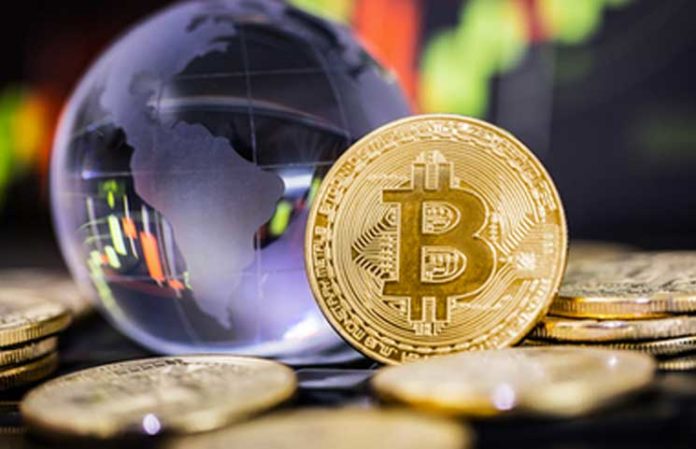A growing number of people are turning to cryptocurrencies as an increasingly popular form of investment. Nevertheless, crypto is not only gaining ground in the public sector, but more and more individuals are jumping on the bandwagon to learn more about it.
Crypto’s usability is one of the main reasons for its popularity. It is not only used for making investments, but also for making payments and completing transactions around the globe. In the financial world, this makes it an even more interesting commodity.
As a means of linking user sectors and direct markets, cryptocurrency exchanges are an essential part of the whole digital currency industry. Cryptocurrency exchanges are usually used to buy, sell, trade, stake cryptocurrencies. On these exchanges, they also carry out crypto transactions using e-wallets. There are dozens of exchanges around the world, whose credibility is determined by KYC processes, media presence, and security hacks as well. One of the most important decisions one has to make in one’s investing and trading career is choosing a cryptocurrency exchange.
How do centralized and decentralized exchanges differ?
Decentralization and anonymity are two concepts that describe all crypto and blockchain technology. Blockchain technology distributes power rather than concentrating it in the hands of a single authority. However, there are still a number of centralized and decentralized cryptocurrency exchanges that exist.
The centralized exchanges are directly contrary to the point of view behind blockchain technology, but they still draw a significant percentage of users to their network. There are many security risks associated with a centralized exchange since a single entity holds most of the power. Users of a centralized exchange can incur high losses if a mistake is made at the network’s end. There are a number of centralized cryptocurrency exchanges in the market such as Binance, Coinbase, and Kraken. Despite this, many of these exchanges are pursuing their own decentralized projects due to the pressure they are receiving from the user sector.
The decentralized exchanges, on the other hand, are peer to peer (P2P) systems and are based on independent nodes. Thus, no matter how many times the exchange fails, it remains compliant and stable enough to function without any disruption. Some of the most popular names in the market are Stellar DEX, Bisq, and IDEX. In the crypto realm, the decentralized model of an exchange is the closest to the proposed blockchain model despite both styles having their pros and cons.
Identifying a trustworthy cryptocurrency exchange
When considering a cryptocurrency exchange, there are a few things to keep in mind. A user needs to ensure that the exchange adheres to the set security measures, as well as it should be able to survive a cyberattack on its protocol. Two-factor authentication, captchas, anti-phishing functionalities, and other security measures should be incorporated into exchanges. The presence of a high volume of trading is also considered a sign of credibility and reliability for exchanges. Transparency and adverse media data should be considered when evaluating an exchange.
It should also be possible for users to locate the geophysical location of the exchange. This lends credibility to the exchange and ensures its authenticity. There are usually high transaction fees on cryptocurrency exchanges, but users are compensated for that because the exchange offers premium security. Therefore, users should assess an exchange beforehand, as that would give them a chance to choose the most suitable option.
Regulations and crackdowns against the world’s leading exchanges
The crypto industry is accompanied by regulatory checks and authoritative crackdowns despite its growing fame. The decentralization movement is often seen as a source of no regulation, while others believe that regulation indicates that crypto will be legitimized with mature markets. In spite of opinions to the contrary, cryptocurrencies are subject to a series of regulations worldwide. This might come off as a good thing but it has surely kept the crypto community at the edge of their seats.
In the United States, a number of authorities regulate cryptocurrency exchanges strictly. The government requires these exchanges to get registered as money service businesses. In addition, they expect to report to law enforcement agencies in case of any malicious or suspicious activities on their network. Turkey has also prohibited the use of crypto as a payment method and has banned the most popular exchange, Binance.
In China, cryptocurrency exchanges have been punished and strict laws have been passed for crypto businesses to follow. As a result of local regulations, Binance has discontinued its options and futures trading opportunities in Australia. Many European countries, including the United Kingdom, are keeping a strict regulatory check on cryptocurrency exchanges, as fear grows among the consumers about the security of their funds on these popular exchanges.
Crypto exchanges have been subjected to worldwide regulatory checks in recent years, which has divided the crypto community. Despite these recent developments, one thing is certain: crypto is gaining ground in the mainstream world of finance, and it has certainly become a global force. Governments and authorities from all over the world are recognizing the power that crypto holds, and this might be the expected breakthrough for crypto to give it a direct entry into the global economic structure.

